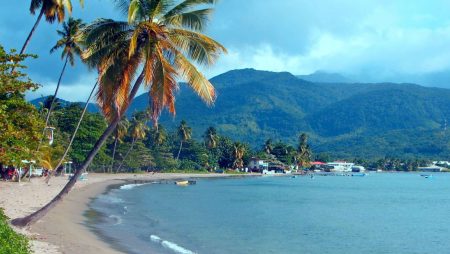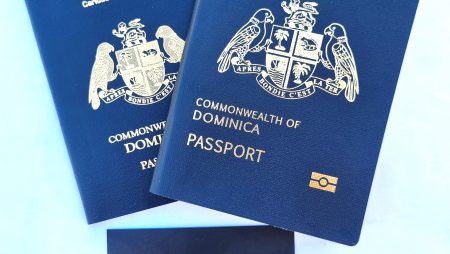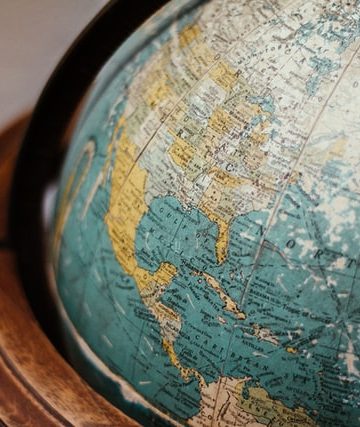
How to Travel to Citizenship and Residency by Investment Countries in September 2021
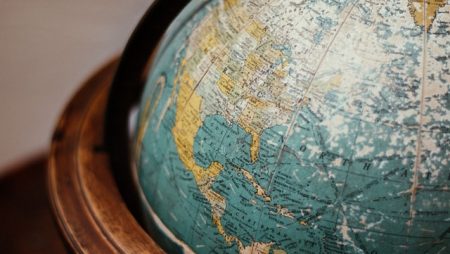
The world pandemic continues to restrict global travellers. While some countries are opening borders and ready to meet tourists, other countries are getting back to embarking on lockdowns. We have studied verifiable sources to prepare an article where you can find out the latest requirements for visiting major destinations for citizenship and residency by investment.
Sad news for those of you who have been looking forward to travelling to the Caribbean countries, as the restrictions in the Caribbean region are back in action. Currently, it is almost impossible to get to some islands, while the pandemic restrictions in others have become far stricter.
St Kitts and Nevis
Passengers are not allowed to enter St Kitts and Nevis. However, this does not apply to nationals and residents of St Kitts and Nevis; passengers with a COVID-19 vaccination certificate showing that they were fully vaccinated at least 14 days before arrival; passengers who are younger than 18 if they travel with their parents who have been fully vaccinated (vaccines accepted are: AstraZeneca (Vaxzevria), Janssen, Moderna and Pfizer-BioNTech).
Flights from Brazil, India, South Africa and the United Kingdom are suspended. It is also worth mentioning that all travellers must complete an entry form before arrival, and download the SKN COVID-19 contact tracing mobile app. All arrivals to Saint Kitts and Nevis are required to spend the first 14 days of their trip in a hotel on the approved list, while vaccinated arrivals are required to stay in an approved hotel only for 4 days, if tested negative on day 4. If the test result is negative on the 9th day, it is possible for the tourists to leave for approved activities.
Antigua and Barbuda
Passengers entering Antigua and Barbuda must have a negative COVID-19 PCR test result. The test must have been taken not later than 7 days before departure from the first embarkation point. This does not apply to passengers younger than 12 years. Anyone arriving in Antigua and Barbuda is advised to self-monitor and might be required to quarantine based on screening results. Visitors must stay only in approved accommodation for the first 14 days.
What is also crucial is that all arriving passengers will need to complete a health declaration form, which is to be shared with Port Health Authorities. Passengers arriving from or who have been in Brazil, India, or South Africa in the past 14 days are not allowed to enter Antigua.
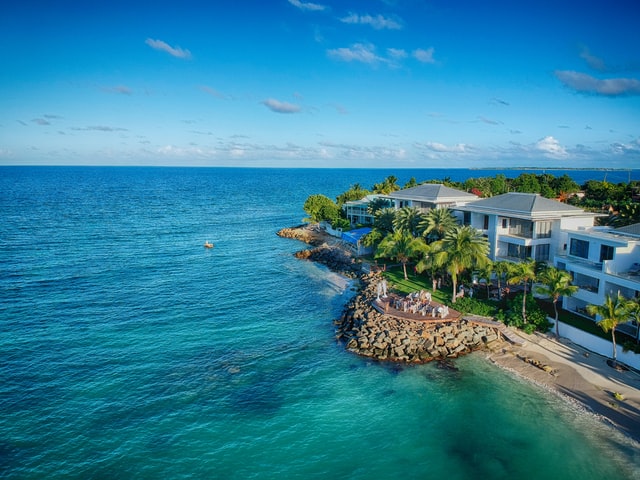
Dominica
Fortunately, Dominica is among the countries that opened their borders to foreigners. In order to enter the country smoothly, you must take some requirements into account. First of all, each person arriving in Dominica is required to fill a health questionnaire no more than 24 hours before arrival as well as to present a negative PCR test, no older than 72 hours. Besides, all arrivals to Dominica from high-risk countries are required to quarantine for 5 days in an approved location. Anyone testing positive upon arrival will be required to quarantine for a longer period. Vaccinated arrivals will be tested upon entry, and if the test is negative, they will be exempt from quarantine. If all the test results are negative, Dominica’s visitors can freely visit public places.
St Lucia
Tourists can also visit St Lucia, though they have to meet a number of requirements.
Passengers over the age of 18 must complete the “Travel Registration Form” at least 7 days before arrival and a travel authorisation letter confirming that their hotel stay has been verified. Passengers over the age of 5 must have a printed negative COVID-19 PCR test taken not later than 5 days before arrival. Visitors must also present a printed Health Screening Form upon arrival.
When arriving, foreigners (except for arrivals from the CARICOM bubble, who must self-quarantine for 14 days) are required to stay in a certified hotel for the first 14 days and leave only for certified activities and tours. Vaccinated arrivals are not required to quarantine.
Grenada
As of 31 July 2021, all persons entering Grenada either by air or sea must be fully vaccinated with a WHO-approved vaccination at least two weeks before their arrival. Though, this requirement does not extend to nationals and residents of Grenada and children aged under 13. Also, passengers must have a negative COVID-19 PCR test result issued not later than 72 hours before departure from the first embarkation point.
Apart from that, passengers must have a “Pure Safe Travel Certificate” obtained before departure. Visitors must agree to take a PCR test, paid for in advance, when they arrive, as well as spend up to 14 days in quarantine at a government-approved hotel, and to download Grenada’s tracing app.
European countries
Montenegro
Tourists from all over the world are welcome to visit Montenegro, though there are still some restrictions for foreigners coming over. Passengers must have: a negative COVID-19 PCR test result issued not later than 72 hours before departure from the first embarkation point, or a negative COVID-19 rapid antigen test result issued not later than 48 hours before arrival, or a positive serological -IgG antibodies test result issued not later than 30 days before arrival, or a positive COVID-19 PCR test result issued at least 14 days and not later than 90 days before arrival and a recovery certificate specifying that the passenger is not contagious, or a COVID-19 vaccination certificate showing that they were fully vaccinated at least 14 days before arrival. If these requirements are not adhered to, passengers are subject to self-isolation for 14 days. Nationals and residents of Montenegro without one of the following documents are also subject to self-isolation for 14 days.
These requirements do not apply to passengers younger than 5 years; passengers with a COVID-19 vaccination certificate issued in Hungary, and their accompanying minors younger than 18 years; passengers who in the past 15 days have only been in Albania, Bosnia and Herzegovina, Croatia, Cyprus, Kosovo (Rep.), North Macedonia (Rep.), or Serbia.
Restaurants, bars, cafes, businesses and attractions in most of Montenegro are open, therefore visitors can enjoy their vacation while adhering to social distancing and wearing mask requirements.
Malta
Malta has recently introduced extremely harsh restriction measures. It has opened its borders only for vaccinated travelers from some countries (included in the amber list). Other vaccinated arrivals, or those who recovered from COVID-19, may not enter Malta. Permitted unvaccinated arrivals to Malta will be required to self-quarantine. Permitted unvaccinated arrivals to Malta, must present a negative PCR test, no older than 72 hours. They are required to self-quarantine for 14 days.
Nationals and residents of Malta and arrivals from amber list countries must present a negative COVID-19 PCR test taken not later than 72 hours before arrival, digital EU Digital Covid Certificate (EU DCC) showing that they were fully vaccinated at least 14 days before arrival, or a COVID-19 vaccination certificate issued by Malta, Turkey, Dubai, Serbia, Qatar, Albania, Gibraltar, Jersey and Guernsey, Switzerland, the USA or the United Kingdom showing that they were fully vaccinated at least 14 days before arrival (vaccines accepted are AstraZeneca (Vaxzevria), Janssen, Moderna, and Pfizer-BioNTech). Visitors must also complete Passengers a “Public Health Travel Declaration Form” and “Passenger Locator Form” and present them upon arrival.
United Kingdom
The UK is ready to welcome visitors from other countries. At the same time, there are certain restrictions. Passengers who have been in or transited through Afghanistan, Angola, Argentina, Bangladesh, Bolivia, Botswana, Brazil, Burundi, Cape Verde, Chile, Colombia, Congo (Dem. Rep.), Costa Rica, Cuba, Dominican Rep., Ecuador, Egypt, Eritrea, Eswatini, Ethiopia, French Guiana, Georgia, Guyana, Haiti, Indonesia, Kenya, Lesotho, Malawi, Maldives, Mayotte, Mexico, Mongolia, Mozambique, Myanmar, Namibia, Nepal, Oman, Pakistan, Panama, Paraguay, Peru, Philippines, Reunion, Rwanda, Seychelles, Sierra Leone, Somalia, South Africa, Sri Lanka, Sudan, Suriname, Tanzania, Trinidad and Tobago, Tunisia, Turkey, Uganda, Uruguay, Venezuela, Zambia or Zimbabwe in the past 10 days upon arrival have to quarantine in an approved hotel in the UK for 10 days at their own expense.
Passengers from countries other than mentioned above must take a COVID-19 test on day 2 and day 8 after arrival at their own expense. There also should be a payment confirmation. However, if passengers come from countries like Anguilla, Antigua and Barbuda, Australia, Austria, Barbados, Bermuda, Brunei Darussalam, Bulgaria, Cayman Isl., Chinese Taipei, Croatia, Dominica, Falkland Isl., Faroe Isl., Germany, Gibraltar, Grenada, Hong Kong (SAR China), Iceland, Israel, Latvia, Malta, Montserrat, New Zealand, Norway, Portugal (only Madeira), Romania, Singapore, Slovakia, Slovenia, St. Helena or Turks and Caicos Isl., they are required to take the test only on day 2.
Most countries are included in the Amber List. On 8 June, Portugal has joined them, being taken off the Green List because of growing coronavirus case rates. Those coming from the Amber List countries are also required to submit a negative COVID-19 PCR test result, with the test having been taken prior to departure, complete the “Passenger Locator Form”, and undergo repeated tests on days 2 and 8 after their arrival. They must quarantine for 10 days.
All arrivals must also complete a “Public Health Passenger Locator Form” and obtain a negative COVID-19 test result taken not later than 3 days before departure of the last direct flight to the United Kingdom.
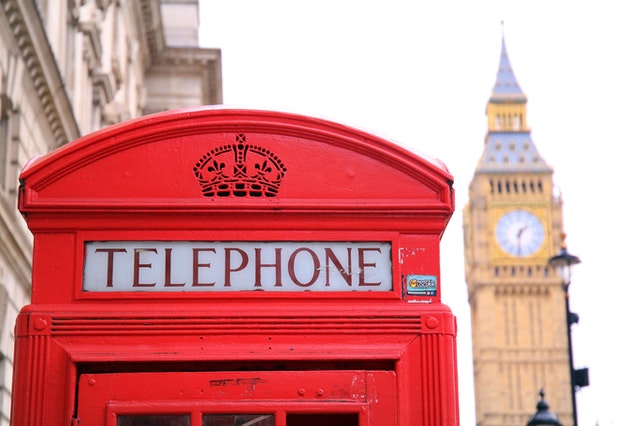
Cyprus
It is possible to travel to Cyprus from the following countries, after applying for a Cyprus Flight Pass not later than 48 hours before the departure for: residents of Cyprus, their spouses and children, arrivals from the EU and Schengen member countries, Australia, Israel, New Zealand, Singapore, Thailand, China, Hong Kong, South Korea, Saudi Arabia, United Kingdom, United States, United Arab Emirates, Russia, Belarus, Ukraine, Qatar, Egypt, Lebanon, Jordan, Bahrain, Georgia, Armenia, Rwanda, North Macedonia, Albania, Armenia, Serbia, Vatican. Passengers with a COVID-19 vaccination certificate issued in Andorra, Armenia, Austria, Bahrain, Belarus, Belgium, Bulgaria, Canada, China (People’s Rep.), Croatia, Cyprus, Czechia, Denmark, Egypt, Estonia, Finland, France, Georgia, Germany, Greece, Hungary, Iceland, Ireland (Rep.), Israel, Italy, Jordan, Kuwait, Latvia, Lebanon, Liechtenstein, Lithuania, Luxembourg, Malta, Monaco, Netherlands, Norway, Poland, Portugal, Qatar, Romania, Russian Fed., San Marino, Saudi Arabia, Serbia, Slovakia, Slovenia, Spain, Sweden, Switzerland, Ukraine, United Arab Emirates, United Kingdom, USA or Vatican City can also travel to Cyprus.
Arrivals to Cyprus must present a negative PCR test, no older than 72 hours. Arrivals from red countries will also be tested upon arrival. Visitors from green countries and fully vaccinated visitors are exempt from testing requirements.
Portugal
Unfortunately, Portugal is still closed for non-essential travel from most countries, and internal restrictions are changing with changes in infection rates. Portugal is open for air travel from the EU, Schengen, and the following countries only: Australia, China, New Zealand, Singapore, South Korea, Thailand, United Kingdom, Israel, United States, Japan, Rwanda, Armenia, Azerbaijan, Jordan, Moldova, Brunei, Bosnia and Herzegovina, Canada, Kosovo, Montenegro, Qatar, Saudi Arabia, Ukraine. Arrivals from high-risk EU countries and other third countries may only enter for essential reasons. Passengers entering or transiting through Portugal must have: a negative COVID-19 rapid antigen test taken not later than 48 hours before departure from the first embarkation point; or a negative COVID-19 NAAT, PCR or RT-PCR test taken not later than 72 hours before departure from the first embarkation point; or an EU Digital Covid Certificate (EU DCC). Besides, all arrivals must complete a passenger locator form in advance. Permitted arrivals to Portugal from South Africa, Brazil, India, and Nepal are required to quarantine for 14 days in an approved location. Unvaccinated arrivals from the UK are required to quarantine for 14 days too.
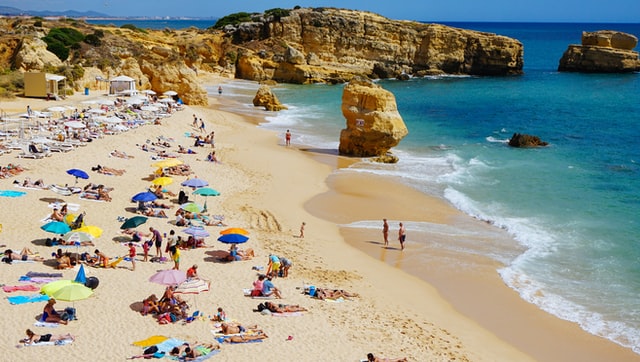
Turkey
Turkey has opened most of its borders, except for the border with Iran. Flights from Bangladesh, Brazil, India, Nepal, South Africa and Sri Lanka are also suspended. Until 31 August 2021, all arrivals to the country over the age of 6 are required to present a negative PCR test, no older than 72 hours, and undergo screening of symptoms (vaccinated arrivals are exempt). Arrivals from Afghanistan, Bangladesh, Brazil, South Africa, India, Nepal, Pakistan, Sri Lanka, Egypt, Iran, Singapore, or the UK, are required to present a test, regardless of vaccination status. What is more, passengers arriving from a country other than Egypt, Iran, Singapore, or the United Kingdom, could be subject to a PCR test at their final destination in Turkey.
Besides, anyone arriving in Turkey without test results might be required to self-quarantine or quarantine in a government facility. A completed 72 hours in advance “Traveler Entry Form” must be presented at check-in and upon arrival.
Italy
Italy is currently open for travel from the EU and some other countries, while domestic restrictions are gradually being lifted. Until 30 August 2021, only arrivals from EU member countries, Schengen member countries, Albania, Andorra, Armenia, Australia, Azerbaijan, Bosnia and Herzegovina, Brunei Darussalam, Bulgaria, Hong Kong, Jordan, Kosovo (Rep.), Lebanon, Moldova (Rep.), Monaco, Montenegro, Qatar, Saudi Arabia, Serbia, Ukraine, United Arab Emirates, New Zealand, Rwanda, Singapore, South Korea, Thailand, United Kingdom, Israel, United States, Canada, Japan are allowed to visit Italy. Flights from Brazil, Sri Lanka, Bangladesh, and India are suspended. Family members and partners of Italian citizens may also enter, and are required to fill a relevant declaration. It is also worth mentioning that passengers travelling on business, passengers returning via Italy to their country of residence, students, and military personnel are also allowed to enter the country. All permitted arrivals, except those from San Marino and Vatican City, will be required to fill a travel declaration form before arrival.
All arrivals are required to present a negative PCR or antigen test, no older than 48-72 hours. Passengers could be subject to self-isolation for 5 or 10 days and to a COVID-19 antigen or molecular test at the end of self-isolation. Vaccinated and recovered arrivals from the EU, Schengen, the US, Canada, Japan and Israel, may present a certificate instead.
Greece
Greece has also opened its airports for travel from a limited number of countries: the EU, Schengen, and several others. Domestically, restrictions are being eased again, following a decrease in infection rates. Visitors from Albania, Andorra, Armenia, Australia, Azerbaijan, Bahrain, Belarus, Bosnia and Herzegovina, Brunei Darussalam, Canada, China (People’s Rep.), Israel, Japan, Jordan, Korea (Rep.), Kosovo (Rep.), Kuwait, Lebanon, Moldova (Rep.), Monaco, Montenegro, New Zealand, North Macedonia (Rep), Qatar, Russian Fed., San Marino, Saudi Arabia, Serbia, Singapore, Turkey, USA, Ukraine, United Arab Emirates and Vatican City (Holy See) are allowed to travel to Greece. Merchant seamen, military personnel, and students also have an opportunity to get to the country.
Anyone arriving in Greece is required to complete a Passenger Locator Form 24 hours before arrival. A confirmation email or a QR code generated after having completed the form must be presented upon arrival. Apart from this, all arrivals to Greece are required to present a negative PCR or RT-PCR test, no older than 72 hours, or an antigen test no older than 48 hours. Random rapid tests are conducted at the border. Arrivals who are fully vaccinated, or recovered from COVID-19, may present proof of vaccination/recovery instead.
Spain
Borders of Spain are opened for vaccinated travelers. For arrivals from EU and Schengen member countries, as well as arrivals from the following countries: Australia, China, Hong Kong, Macau, New Zealand, Rwanda, Singapore, South Korea, Thailand, Israel, Japan, United Kingdom, Albania, Lebanon, North Macedonia, Serbia, United States, Taiwan, Armenia, Azerbaijan, Jordan, Moldova, Brunei, Bosnia and Herzegovina, Canada, Kosovo, Montenegro, Qatar, Saudi Arabia, Ukraine it is possible to travel to Spain unvaccinated. Arrivals from Argentina, Bolivia, Brazil, Colombia, India, Namibia or South Africa are not allowed entry, including those who have been vaccinated. Also, passengers arriving from Argentina, Bolivia, Brazil, Colombia, Namibia, or South Africa are subject to quarantine for 10 days.
Passengers travelling to Spain must have: a negative COVID-19 rapid antigen test taken not later than 48 hours before arrival; or a negative COVID-19 NAAT test taken not later than 72 hours before arrival; or a COVID-19 vaccination certificate showing that they were fully vaccinated with AstraZeneca (Vaxzevria), Janssen, Moderna or Pfizer-BioNTech, Serum Institute of India, Sinopharm or Sinovac at least 14 days before arrival; or a COVID-19 recovery certificate issued at least 11 days after the positive COVID-19 test result. All arrivals are required to fill in an FCS form beforehand.
REMINDER: With the pandemic situation and COVID-19 countering requirements in the countries mentioned above is constantly changing, make sure you follow the news of the country you are planning to visit.
The borders keep on closing, the visas are harder to obtain, and therefore being able to travel is still a difficult task to achieve. However, alternative citizenship/residency can become a great solution to these and many other issues. We offer tailored citizenship and residency by investment solutions, helping our clients obtain economic citizenship in such countries as St Kitts and Nevis, Grenada, Dominica, St Lucia, Antigua and Barbuda, Malta, Montenegro, and Turkey, or residency of Portugal, Malta, United Kingdom, Cyprus, and others. With a second passport or residency permit, you will be able to visit your new home country without restrictions and travel around the globe visa-free.

